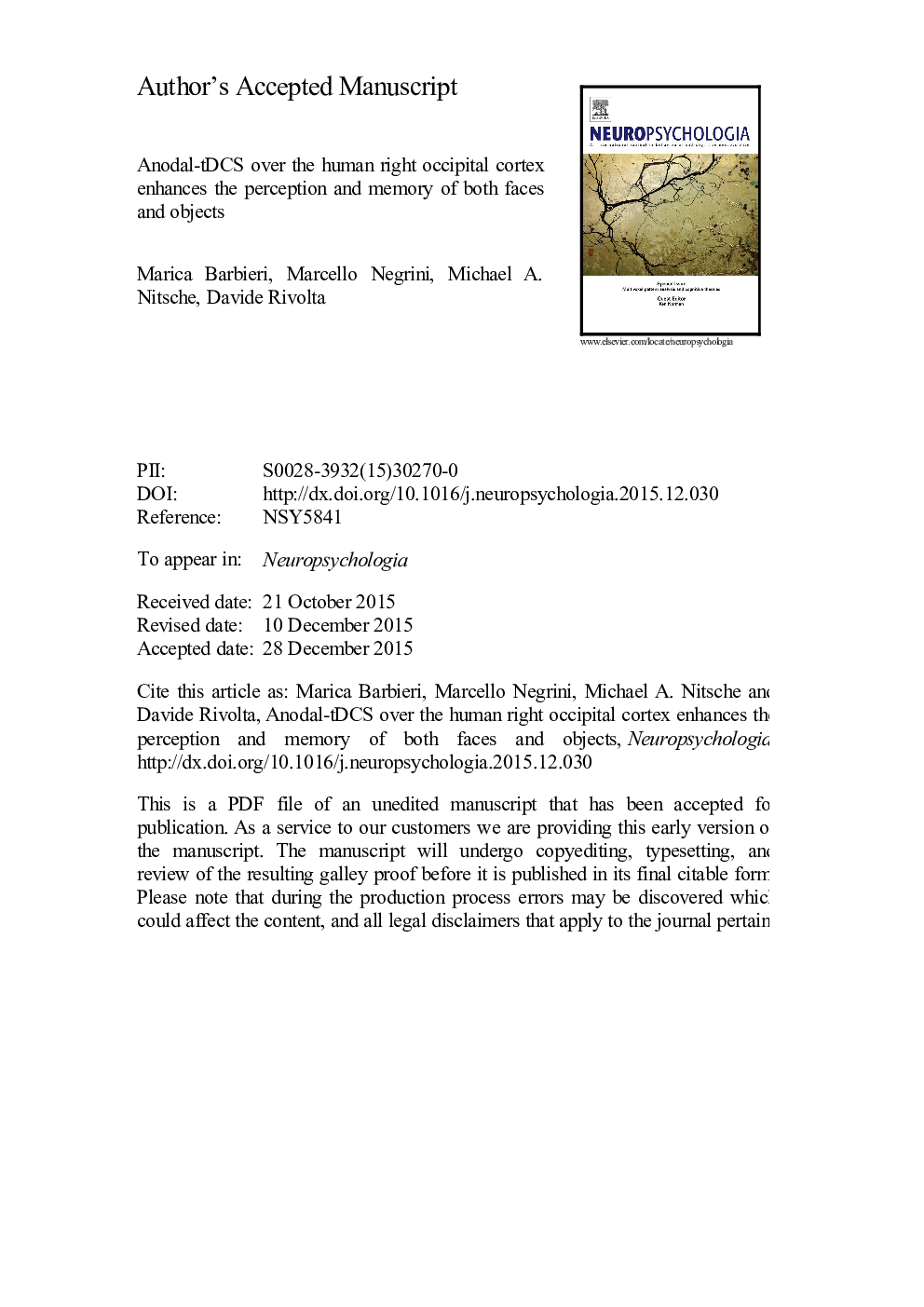| Article ID | Journal | Published Year | Pages | File Type |
|---|---|---|---|---|
| 7319511 | Neuropsychologia | 2016 | 32 Pages |
Abstract
Accurate face processing skills are pivotal for typical social cognition, and impairments in this ability characterise various clinical conditions (e.g., prosopagnosia). No study to date has investigated whether transcranial direct current stimulation (tDCS) can causally enhance face processing. In addition, the category- and the process-specificity of tDCS effects, as well as the role of the timing of neuromodulation with respect to the execution of cognitive tasks are still unknown. In this single-blind, sham-controlled study, we examined whether the administration of anodal-tDCS (a-tDCS) over the right occipital cortex of healthy volunteers (N=64) enhances performance on perceptual and memory tasks involving both face and object stimuli. Neuromodulation was delivered in two conditions: online (a-tDCS during task execution) and offline (a-tDCS before task execution). The results demonstrate that offline a-tDCS enhances the perception and memory performance of both faces and objects. There was no effect of online a-tDCS on behaviour. Furthermore, the offline effect was site-specific since a-tDCS over the sensory-motor cortex did not lead to behavioural changes. Our results add relevant information about the breadth of cognitive processes and visual stimuli that can be modulated by tDCS, and about the design of effective neuromodulation protocols, which have implications for advancing theories in cognitive neuroscience and clinical applications.
Related Topics
Life Sciences
Neuroscience
Behavioral Neuroscience
Authors
Marica Barbieri, Marcello Negrini, Michael A. Nitsche, Davide Rivolta,
